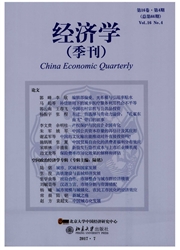

 中文摘要:
中文摘要:
本文运用1995年和2002年中国城镇家庭收入调查系列数据(CHIP)中的个人回忆性收入,对我国城镇代际收入弹性的估计偏误进行了纠正,并对其中纯粹由收入因素导致的部分进行了识别。结果表明,在纠正估计偏误后,我国的代际收入弹性在1990—1995年间和19982002年间分别达到了0.8和0.4左右,相对于OECD国家较高;其中纯粹由收入所导致的部分大约占1/3。通过进一步深化的市场改革来提高代际收入流动性,对我国经济发展具有重要意义。
 英文摘要:
英文摘要:
Using the CHIP data of urban retrospective income, this paper identifies the estimation bias and the causal impact of income on intergenerational income elasticity in Chi ha. The results suggest that the IIE reached 0.8 and 0.4 respectively in the period of 1990-- 1995 and 1998-2002, which was much higher than the estimation based on annual income observation and also higher than a lot of other countries. About one third of this intergenera tional transmission can be attributed to the causal impact of father's income. Further market oriented reform is suggested to improve the intergenerational income mobility in China.
 同期刊论文项目
同期刊论文项目
 同项目期刊论文
同项目期刊论文
 期刊信息
期刊信息
